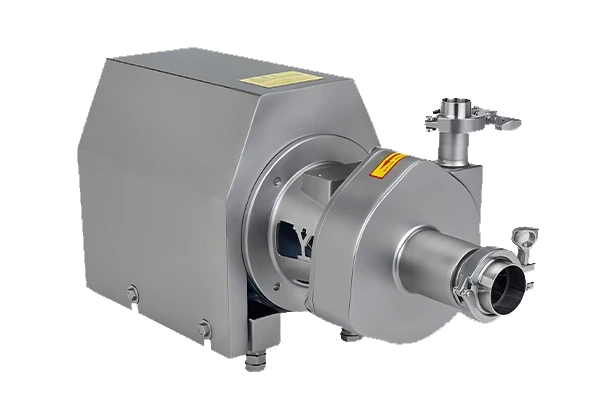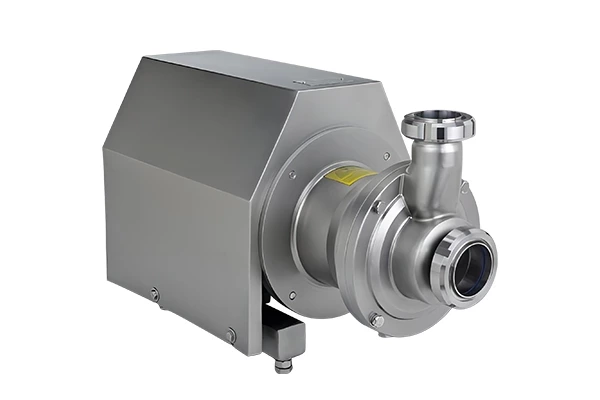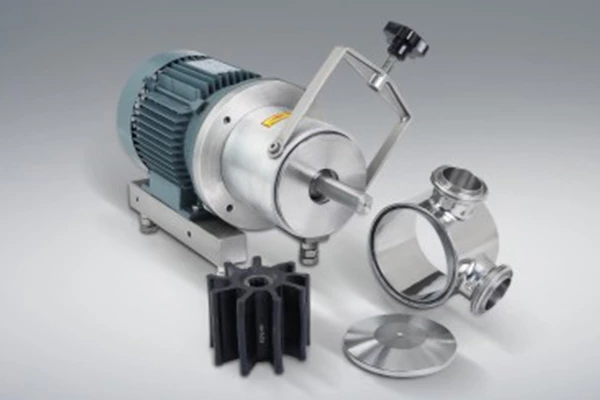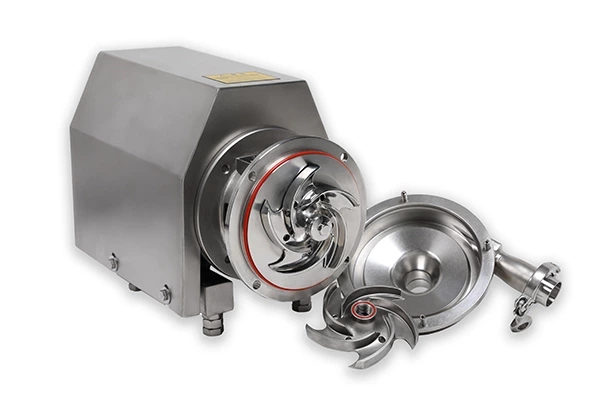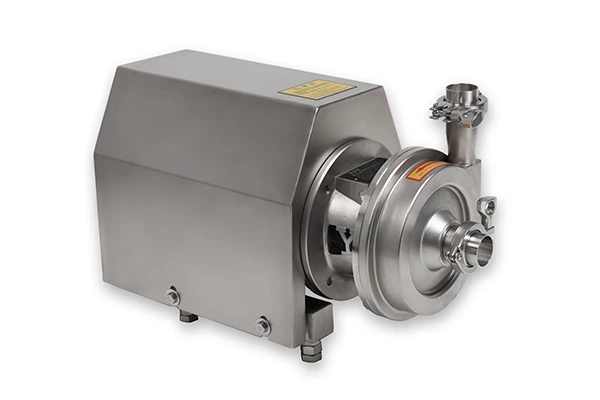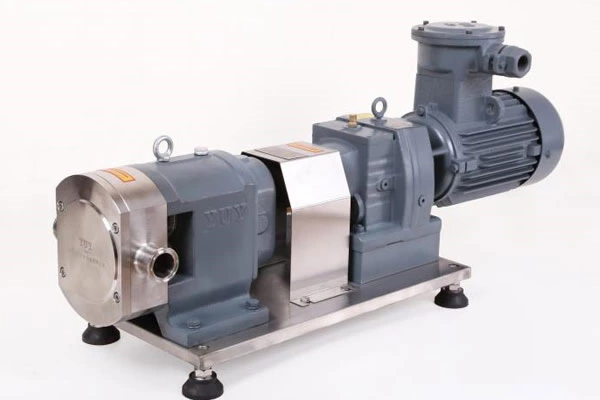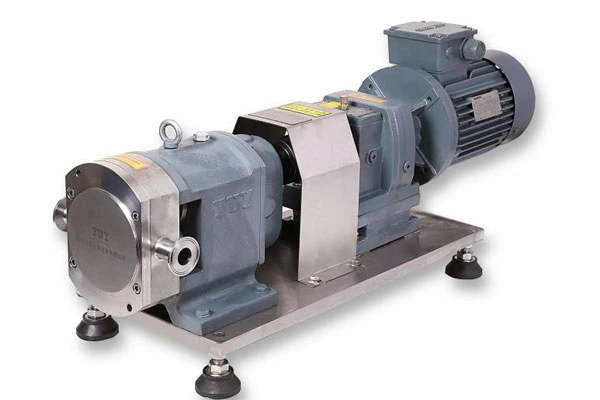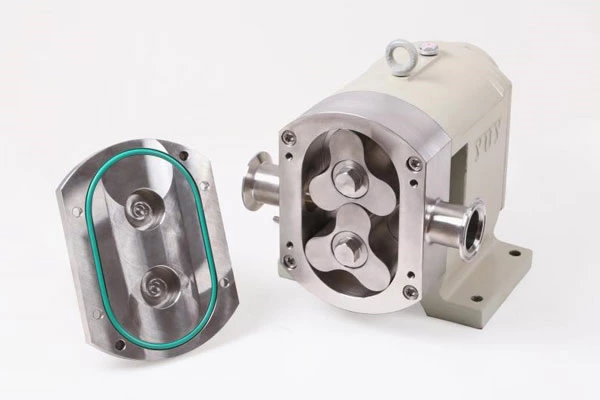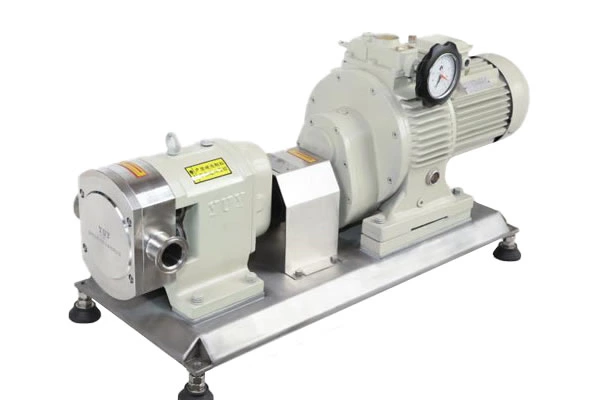Chemical Pump Material Selection
Corrosion has always been one of the most troublesome hazards of chemical equipment. If you are not careful, the equipment may be damaged at the least, or an accident or even a disaster may occur at the worst. According to relevant statistics, about 60% of the damage to chemical equipment is caused by corrosion. Therefore, when selecting Sanitary Negative Pressure Pump, you should first pay attention to the scientific nature of material selection. There is usually a misunderstanding that stainless steel is a "universal material" and stainless steel pumps are used regardless of the medium and environmental conditions. This is very dangerous. The following is a discussion of the key points of material selection for some commonly used chemical media:
1. Sulfuric acid is one of the highly corrosive media and is an important industrial raw material with a wide range of uses. Sulfuric acid of different concentrations and temperatures has a large difference in the corrosion of materials. For concentrated sulfuric acid with a concentration of more than 80% and a temperature of less than 80°C, carbon steel and cast iron have better corrosion resistance, but they are not suitable for high-speed flowing sulfuric acid and are not suitable for use as materials for pumps and valves; ordinary stainless steel such as 304 (0Cr18Ni9) and 316 (0Cr18Ni12Mo2Ti) are also limited in use for sulfuric acid media. Therefore, pumps and valves for conveying sulfuric acid are usually made of high-silicon cast iron (difficult to cast and process) and high-alloy stainless steel (No. 20 alloy). Fluoroplastic has good resistance to sulfuric acid, and the use of fluorine-lined pumps (F46) is a more economical choice. The company's applicable products include: IHF fluoroplastic chemical pumps, PF (FS) highly corrosion-resistant centrifugal pumps, CQB-F fluoroplastic magnetic pumps, etc.
2. Hydrochloric acid Most metal materials are not resistant to hydrochloric acid corrosion (including various stainless steel materials), and molybdenum-containing high-silicon iron can only be used for hydrochloric acid below 50°C and 30%. In contrast to metal materials, most non-metallic materials have good corrosion resistance to hydrochloric acid, so lined rubber pumps and plastic pumps (such as polypropylene, fluoroplastics, etc.) are the best choices for conveying hydrochloric acid. The company's applicable products include: IHF fluoroplastic chemical pumps, PF (FS) highly corrosion-resistant centrifugal pumps, CQ polypropylene magnetic pumps (or fluoroplastic magnetic pumps), etc.
3. Nitric acid Most general metals are quickly corroded and destroyed in nitric acid. Stainless steel is the most widely used nitric acid-resistant material and has good corrosion resistance to nitric acid of all concentrations at room temperature. It is worth mentioning that stainless steel containing molybdenum (such as 316, 316L) is not only not better than ordinary stainless steel (such as 304, 321) in corrosion resistance to nitric acid, but sometimes even worse. For high-temperature nitric acid, titanium and titanium alloy materials are usually used. The company's applicable products include: DFL (W) H chemical pump, DFL (W) PH shielded chemical pump, DFCZ process pump, DFLZP self-priming chemical pump, IH type chemical pump, CQB magnetic pump, etc., made of 304.
4. Acetic acid It is one of the most corrosive substances in organic acids. Ordinary steel will be severely corroded in acetic acid of all concentrations and temperatures. Stainless steel is an excellent acetic acid-resistant material. Molybdenum-containing 316 stainless steel can also be used for high temperature and dilute acetic acid vapor. For high temperature and high concentration acetic acid or other corrosive media and other harsh requirements, high alloy stainless steel pumps or fluoroplastic pumps can be selected.
5. Alkali (sodium hydroxide) Steel is widely used in sodium hydroxide solutions below 80℃ and within 30% concentration. Many factories still use ordinary steel at 100℃ and below 75%. Although corrosion increases, it is economical. Ordinary stainless steel has no obvious advantage over cast iron in corrosion resistance to alkali solution. As long as a small amount of iron is allowed to be added to the medium, stainless steel is not recommended. Titanium and titanium alloys or high-alloy stainless steel are mostly used for high-temperature alkali solution. The company's general cast iron pumps can be used for low-concentration alkali solution at room temperature. When special requirements are required, various stainless steel pumps or fluoroplastic pumps can be used.
6. Ammonia (ammonia hydroxide) Most metals and non-metals are slightly corroded in liquid ammonia and ammonia water (ammonia hydroxide). Only copper and copper alloys are not suitable for use. Most of the company's products are suitable for the transportation of ammonia and ammonia water.
7. Brine (seawater) The corrosion rate of ordinary steel in sodium chloride solution, seawater and salt water is not very high, and generally requires coating protection; various stainless steels also have a very low uniform corrosion rate, but may cause local corrosion due to chloride ions, and 316 stainless steel is usually better. All kinds of chemical pumps in the company are equipped with 316 materials.
8. Alcohols, ketones, esters, ethers Common alcohol media include methanol, ethanol, ethylene glycol, propanol, etc. Ketone media include acetone, butanone, etc. Ester media include various methyl esters, ethyl esters, etc. Ether media include methyl ether, ethyl ether, butyl ether, etc. They are basically non-corrosive and commonly used materials can be used. When selecting, reasonable choices should be made based on the properties of the media and relevant requirements. It is also worth noting that ketones, esters, and ethers are soluble in many types of rubbers, so avoid mistakes when choosing sealing materials.
There are many other media that cannot be introduced here one by one. In short, you must not be arbitrary and blind when selecting materials. You should consult more relevant information or learn from mature experience
